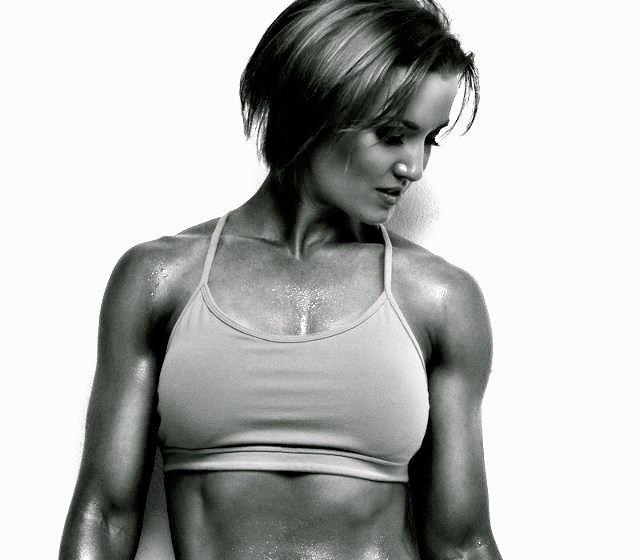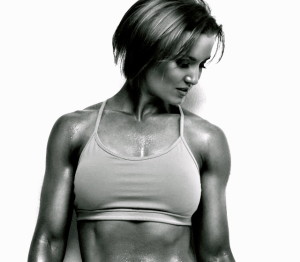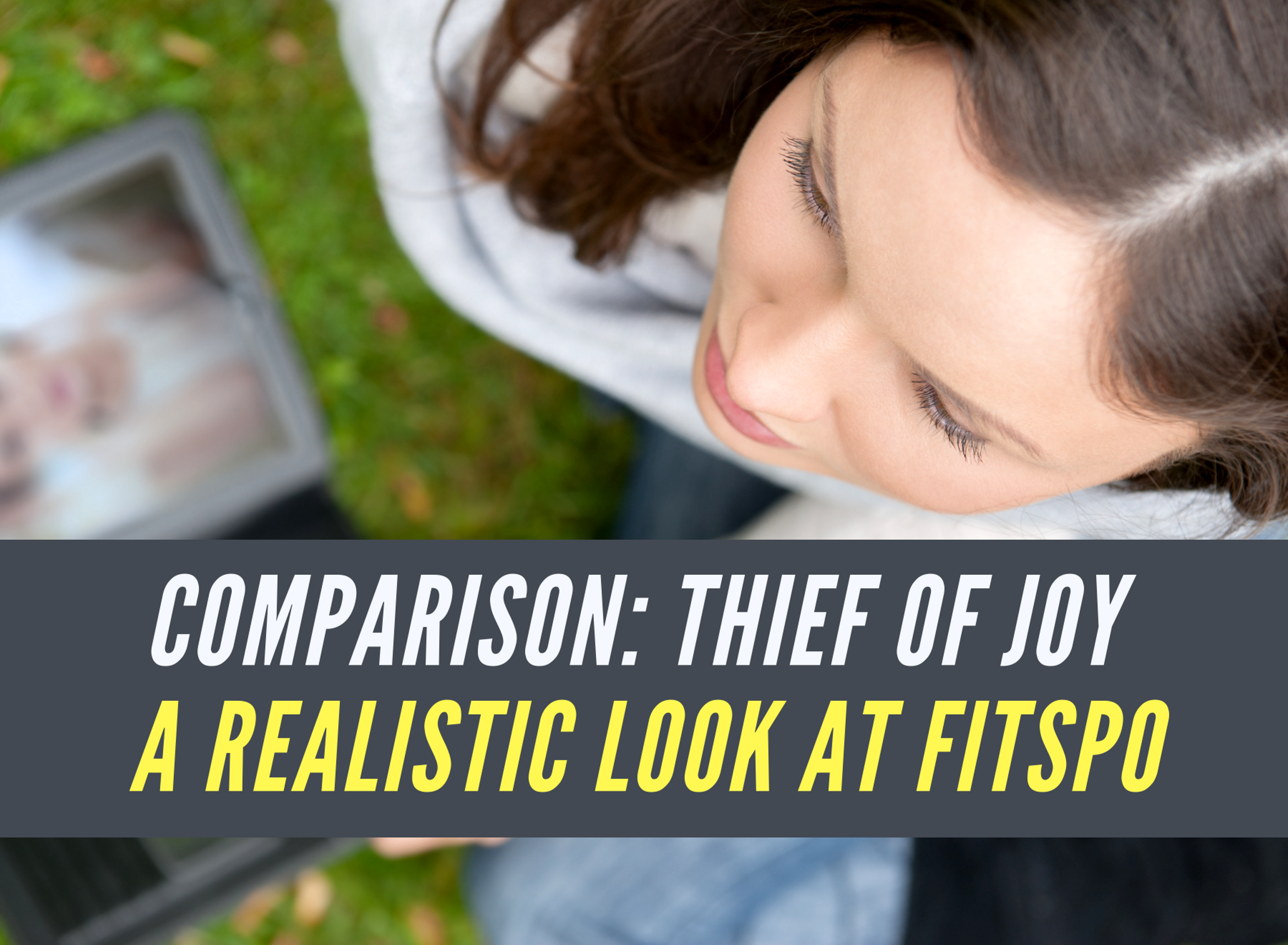After following Dani for some time, I was so excited to finally have an opportunity to get into her head a bit deeper. This figure competitor knows firsthand the dangers of disordered eating and helps her clients break the cycle and rebuild their relationship with food.
EM2WL: Thanks again, Dani, for agreeing to be interviewed. Just to give everyone a brief background, you started lifting in high school which led to competing and winning several competitions, most recently taking first place in novice and third place in open at this year’s Axis Labs Northern Colorado’s figure competition. You’ve also authored several articles and recently published The Sound of Secrets: End Disordered Eating, recounting your sister’s battle with the disease. Why did you feel the need to write this book?
Dani: I wrote this book after losing my big sister. She struggled with anorexia for nearly two decades, and a few months after her death it occurred to me that my sister’s struggle, though extreme, started somewhere fairly benign, at a place where a lot of women find themselves now.
I wrote the book to stop women (and men) from going down that same route, and to help them break out of the eating habits that make them feel and look miserable.
 E: In your book you labeled disordered eating as the new normal. How do you think society has come to this state?
E: In your book you labeled disordered eating as the new normal. How do you think society has come to this state?
D: I don’t know if we can blame any one thing. It would be easy to point the finger at Photoshop, the media, and the underrepresentation of strong, healthy bodies. But I think it’s more complicated than that.
I have to wonder if the rise in disordered eating is just a backlash (a strong and adverse reaction) to the rise in obesity. Maybe people are just trying to avoid becoming the norm but going about it in counterproductive ways. There’s a general misunderstanding about how to be lean and healthy for the long haul.
Another thing that might have something to do with it is the increasing availability and consumption of hyperpalatable, processed foods. The salt/sugar/fat trifecta makes a lot of people compulsive overeaters. (It had that effect on me.) And when people want to be thin, yet become addicted to foods that do the opposite, they resort to compensatory actions instead of building a healthier relationship with foods that nourish.
Any level of disordered eating is a thief of our happiness, sanity, health, time, self respect, and potential.
E: Do you feel that many of today’s popular diets like paleo or IF contribute to the problem? What are your thoughts on IIFYM?
D: I think modern diets are just a symptom of a problem that’s already there. Sure, they can contribute to it and overcomplicate it, but diets are not where the problem begins. The problem begins in the mind, and it begins with our perception of what will make us healthy, fit, lean, and happy long term. Those who are obsessed with weighing less at the expense of their health are at risk for disordered eating, no matter what diet they subscribe to.
IIFYM (like many dieting strategies) can be beneficial or harmful depending on what your mindset is when using it. If you’re really focused on nourishing yourself then it can be used for good. It has its place, but it’s not a way of life. Counting and measuring everything you eat for your lifetime is insanity. Are you going to take scales and measuring cups with you everywhere you go? At some point you have to trust your ability to eye-ball an appropriate amount of food, and then eat according to your hunger. At some point you have to trust that your metabolism will work in your favor and use everything you consume.
Another thing — avoiding hyper-palatable food, the stuff that’s engineered to make you eat more, is a good idea. But I don’t see that as dieting, just self-defense. And filling your body up with what you know will nourish and satiate, is the best way to take care of yourself and become leaner in the process. No diet necessary.

E: When most people think of disordered eating, images of purging or extreme restrictive dieting come to mind. Would you consider behavior where someone regularly over indulges on the weekend and then tries to ‘burn it off’ or restrict calories afterward to be disordered eating?
D: Yes, this is definitely disordered. Anytime you overindulge and then try to compensate for it, you’re engaging in what I described in the book as the “binge-punish” cycle.
When working with clients, I also refer to it as the Good Girl/ Bad Girl cycle or Good Boy/Bad Boy cycle. People perceive their behavior as “bad” when they lose control, and then they perceive their behavior as “good” the next day when they try to undo the damage. A lot of folks go through this cycle every single day and don’t realize it’s disordered… all they see is the weight gain that happens as a result. So when I work with clients who are want to lose weight we have to address this cycle first.
E: In your book you describe the 5 phases of the binge-punish cycle which start with highly addictive engineered foods and ends with bingeing. What are some ways people can break this cycle?
D: There are so many ways to break the cycle and they all depend on the person. But here are three that I often use with clients:
Breaking the cycle begins when you have the most control. If you end the day famished and tired, you’ll be more likely to default to whatever behavior is easiest or most habitual. This often means choosing the most convenient food – whatever it may be. So if you’re used to eating food that makes you crave more, you’re going to grab that in a moment of weakness. To break the cycle, nourish yourself early and often, and you’ll prevent the need to reach for things that don’t serve you.
 Another way to break the cycle is just to make sure that your (home and work) environment accommodates it. Make sure you have healthy go-to foods available everywhere you are so that even if you are tempted to seek foods that trigger more eating, you have another easily available option.
Another way to break the cycle is just to make sure that your (home and work) environment accommodates it. Make sure you have healthy go-to foods available everywhere you are so that even if you are tempted to seek foods that trigger more eating, you have another easily available option.
Another way to break the cycle is to find out why you’re eating. Is your reason for eating physical or psychological? Check in with yourself and ask, “Am I eating this because I’m really hungry, or am I looking for a distraction and mental relief?” Strong emotions can start the cycle, and if you can get down to the bottom of WHY you’re reaching for food in the first place, then you can begin to establish strategies to deal with these emotions aside from food.
E: How important is it to have self compassion when trying to break free from disordered eating?
D: Self compassion doesn’t come naturally for most of us because we operate under the assumption that if you’re hard on yourself you’ll be more successful. This is a giant misconception and I think it’s what keeps people locked in their disordered eating.
Fighting against yourself instead of fighting on the same team makes it much harder to reach your goals. Once people really grasp this, they’re able to help themselves and break free. Self compassion is getting on your own team, and I think it’s essential for success.
For those that are suffering from disordered eating what are some steps they can take toward rebuilding their mindset about food?
Seek understanding. Find resources (books, coaches, articles, other people) that can help you change your mindset. Focus on changing your thinking and behavior instead of your macros and calories.
Women tend to get excited by weight loss no matter how it’s accomplished.
E: Fitness and strength training have obviously been a big part of your life. At EM2WL we encourage women to lift heavy weights and often run into the ‘fear of getting bulky’ objection. What do you say to women when faced with a similar concern?
 D: This is one of my favorite things to address. If you’re trying to change your disordered eating you have to change your disordered thinking. See if you can let go of the smallness goal because ironically, the strategies that make you weigh less initially are the same exact ones that either backfire and make you gain weight in the long run, or enslave you in a life of wasting away.
D: This is one of my favorite things to address. If you’re trying to change your disordered eating you have to change your disordered thinking. See if you can let go of the smallness goal because ironically, the strategies that make you weigh less initially are the same exact ones that either backfire and make you gain weight in the long run, or enslave you in a life of wasting away.
When you lose weight without building muscle you become a “smaller” person. And as such, you have to eat fewer and fewer calories (otherwise you’ll go right back to the same weight you were). But muscle changes that. It makes you expend more energy, and it requires you to consume more energy to grow.
Muscle not only ups your metabolism it also makes you look leaner. No matter how much weight you’re carrying, muscle will change the shape of your body like nothing else. And in order to have muscle definition, you have to have muscle. There’s no way around it.
E: Thanks again Dani! How can our readers hear more from/follow you?
D: Thanks for letting me share! Get in touch! Here’s where you can find me:
Website: http://www.goodgirlfitness.net
Facebook: https://www.facebook.com/GoodGirlFitness?ref=hl
Twitter: https://twitter.com/DaniShugart
Instagram: http://instagram.com/danishugart
Photos credit: www.bigstock.com
Discover more from Eat More 2 Weigh Less
Subscribe to get the latest posts sent to your email.









Recent Comments